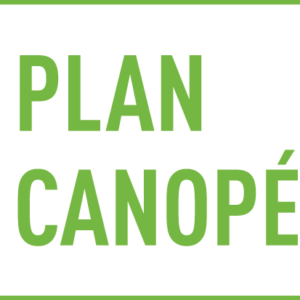Canopy Plan
With a population of almost 200,000, Liège is a municipality that is close to its citizens, carrying out legal missions and implementing concrete policies in various areas of daily life, such as social action, housing, education and the environment.
Overview of the project

To limit the exposure of the citizens of Liège to environmental, climatic and health risks, the City of Liège launched its Canopée Plan in 2020. The objective is simple: to plant more than 24,000 trees by 2032 to make Liège a greener, more resilient and more breathable city by 2050, where it’s good to live in good health.
The benefits of trees in the city are numerous and help to meet a number of important challenges: lower temperatures, CO2 capture, air purification, citizen well-being, support for biodiversity, greening of poorly vegetated neighborhoods and reduced rainwater runoff…
Trees planted in Liège are therefore an effective and economic way of anticipating climate change and adapting the city to rising temperatures.
The first steps were:
1. Take stock of tree cover ;
2. Identify priority neighborhoods;
3. Identify potential tree-planting sites.
To achieve the objective of +3% tree cover, the strategy can be summed up in 4 key areas: Conserve – Compensate – Increase – Involve
To increase Liège’s tree cover by planting new trees (Increase), existing trees must first be well cared for (Conserve) and lost trees replaced (Compensate). The involvement of all players in Liège, both private and public, is essential to the success of this plan. To support these 4 axes, the City of Liège has developed various tools (regulations, brochures, a tool to help select the right tree, etc.).
Anticipate climate change and adapt the city to rising temperatures by planting trees (+3% canopy).
Ongoing research
1/1/2020 - project still in progress
The number of trees planted in public spaces is as follows: 481 in 2020, 1028 in 2021, 884 in 2022. Progress continues with 1,540 trees in 2023. These plantings are made up of around a hundred different species.
For the Semaine de l’Arbre (Tree Week), the people of Liège can choose from several dozen different species of tall trees. In 2021, 2022 and 2023, 917, 687 and 739 trees respectively were distributed to gardens in Liège.
Completion rates are therefore respectively 16% in private grassland areas, 43% in public grassland areas and 39% in public waterproofed areas.
With 6,276 trees planted, the Canopée Plan is 26% complete, leaving 17,790 trees to be planted by 2032.
To meet the objectives of the Canopée Plan, a number of tools and levers have been developed for the various players in the area:
– Participatory workshops
– Tree Week (distribution, awareness-raising, etc.)
– Passeurs d’Arbres” citizens (relay with citizens)
– Website dedicated to the Canopée Plan (general information and news, recommended species, tree selection application, videos, competitions, etc.)
– Best practices available to all (guide, pruning training, advice, etc.)
– Citizen and professional meetings (neighborhood committees, universities, associations….)
– Mapping of heat islands and thermal variations
– Urban planning regulations and guidelines in favor of trees
– Guide de l’Arbre Urbain to maintain and preserve trees
Internal financing by the City of Liège
organisation
The City of Liège is a municipality of almost 200,000 inhabitants. The commune is the level of government closest to the citizen. This proximity enables it to carry out legal missions and to develop and implement concrete policies in many areas of daily life: social action, housing, civil status, education, regional planning, environment, culture…
For the scientific part, UCLouvain and the Institut Scientifique de Service Public (ISSeP) took part in the study via a call for tenders launched by the City of Liège.
The project is intended to mobilize all local players, both public and private.


